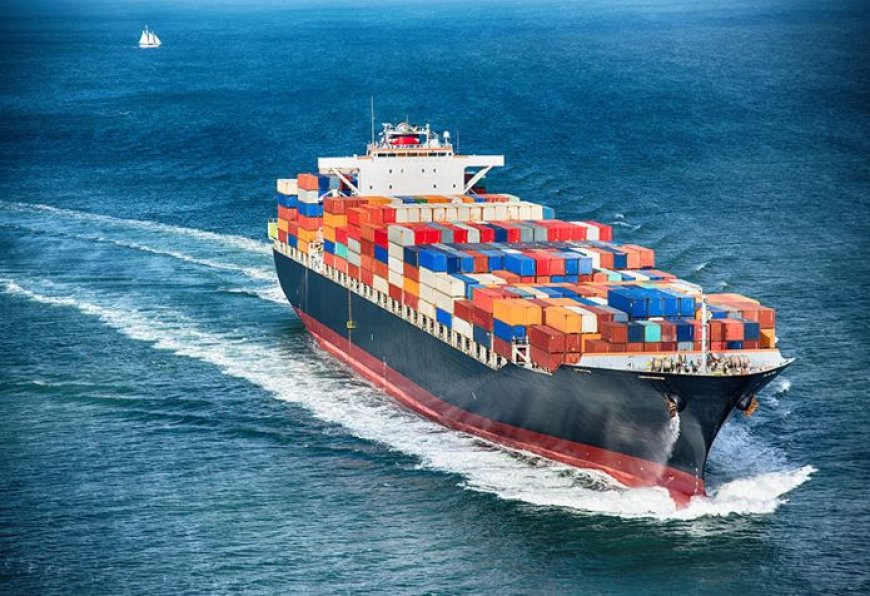How Can Fleet Logistics Support Improve Operations
Explore how Fleet Logistics Support serves as the silent engine behind streamlined military and commercial operations. This in-depth article uncovers how effective logistics strategies boost readiness, enhance efficiency, and ensure mission success — on land, at sea, and in the air.

In todays fast-paced operational environments, whether in military missions or large-scale commercial ventures, the ability to maintain a steady, uninterrupted flow of resources is crucial. At the heart of this capability lies Fleet Logistics Support, a strategic cornerstone that ensures everything from ammunition to spare parts and fuel reaches the right place at the right time.
So, how can Fleet Logistics Support improve operations? The answer lies in its ability to fuse strategic foresight with real-time execution, ensuring operational readiness and sustainability across vast distances and complex missions.
What is Fleet Logistics Support?
Fleet Logistics Support involves the coordinated movement and supply of materials, equipment, and personnel to support fleet operations be it naval ships, aircraft squadrons, or land-based units. It encompasses everything from supply chain management and transportation to maintenance, warehousing, and data-driven inventory control.
Fleet logistics isnt just about moving things its about delivering readiness. It plays a vital role in ensuring that forces remain operational, agile, and capable of executing their missions without interruption.
Key Ways Fleet Logistics Support Enhances Operations
1. Maximizing Operational Readiness
The primary goal of fleet logistics is to maintain high operational readiness. Whether a vessel is on a combat mission or a commercial freighter is crossing the ocean, downtime can be costly and even dangerous. Fleet logistics support ensures that critical supplies fuel, spare parts, rations, or medical kits are available when needed, thereby minimizing unplanned delays or mission failures.
2. Strategic Resource Allocation
Effective logistics systems make it possible to allocate resources where theyre most needed, based on real-time data and predictive modeling. This reduces waste, prevents overstocking, and ensures mission-critical supplies are delivered with pinpoint accuracy. In military settings, this can mean the difference between success and failure.
3. Streamlining Supply Chains
By integrating modern technology such as GPS tracking, AI, and blockchain, fleet logistics operations are now more transparent and trackable than ever. Automation and digital tools allow for quicker, more accurate decisions that streamline supply chains, reduce lead times, and optimize the entire logistics lifecycle.
4. Improving Sustainability and Cost Efficiency
Fuel consumption, inventory waste, and time delays can inflate operational costs significantly. Fleet logistics support provides sustainable solutions such as optimized route planning and eco-friendly transport methods. Over time, this leads to reduced carbon footprints and more cost-effective missions.
5. Enhancing Coordination and Communication
Fleet logistics involves seamless communication between multiple stakeholders from logistics officers and fleet commanders to ground crews and suppliers. Advanced logistics platforms facilitate real-time collaboration, helping everyone stay informed and synchronized, even in the most remote environments.
Real-World Application: Naval and Commercial Sectors
Military/Naval Operations
In the military, Fleet Logistics Support is the backbone of forward-deployed units. Aircraft carriers, submarines, and destroyers often operate far from their home ports. Through an efficient logistics network, these assets receive replenishments at sea via supply ships, minimizing their need to return to base. This enhances combat endurance and strategic flexibility.
Commercial Shipping and Transport
In the commercial sector, especially in global shipping, logistics support ensures timely delivery of cargo, optimized fuel usage, and cost control. Efficient fleet logistics minimizes port time, enhances safety standards, and builds trust with clients through consistent delivery performance.
The Future of Fleet Logistics: Smart and Adaptive
The future of fleet logistics is being shaped by technologies like AI-driven forecasting, IoT-enabled cargo monitoring, and autonomous delivery systems. These tools are making fleet operations more adaptive, reducing human error, and enabling predictive logistics where problems are solved before they occur.
For example, predictive maintenance powered by AI can alert technicians before a critical component fails, thus avoiding delays or accidents. Smart warehousing systems can automatically reorder supplies based on consumption patterns, ensuring availability without excess inventory.
Conclusion: The Power Behind the Mission
Fleet Logistics Support is more than just a behind-the-scenes function its a strategic force multiplier. By ensuring resources are delivered efficiently, operations remain smooth, sustainable, and mission-ready.
Whether it's defending a nation's maritime borders or ensuring timely delivery of goods across oceans, fleet logistics is the invisible engine that drives success.
If youre in the business of operations whether military, industrial, or commercial investing in robust logistics support systems is no longer optional. Its essential for operational excellence.




























